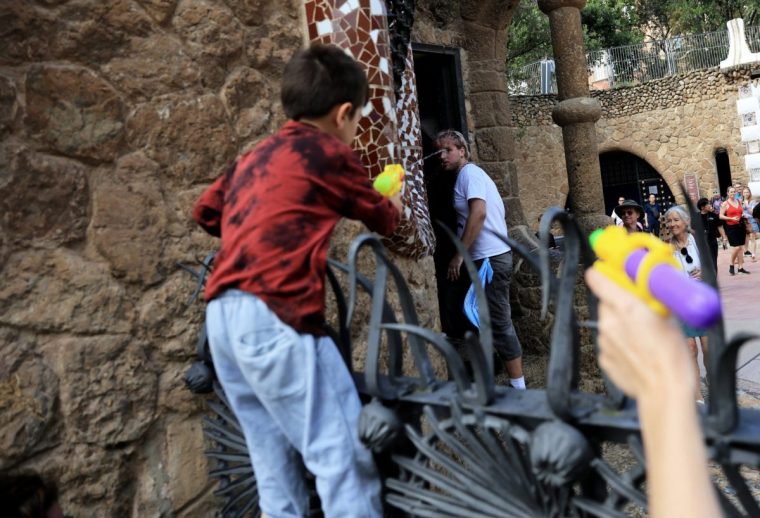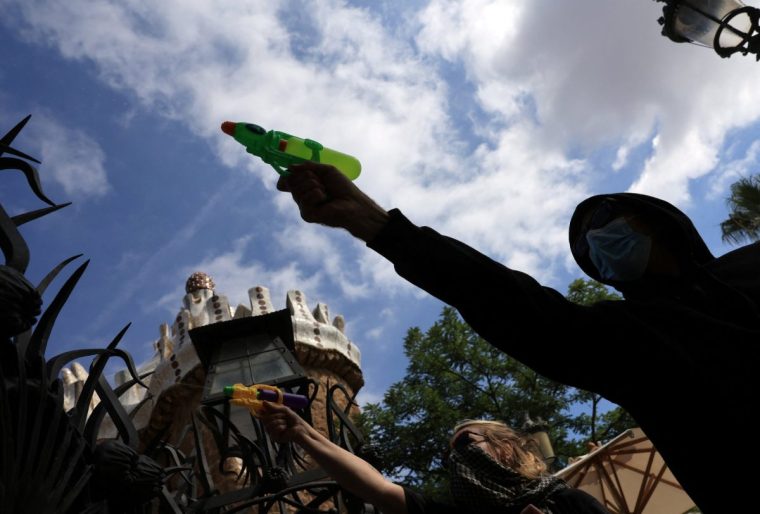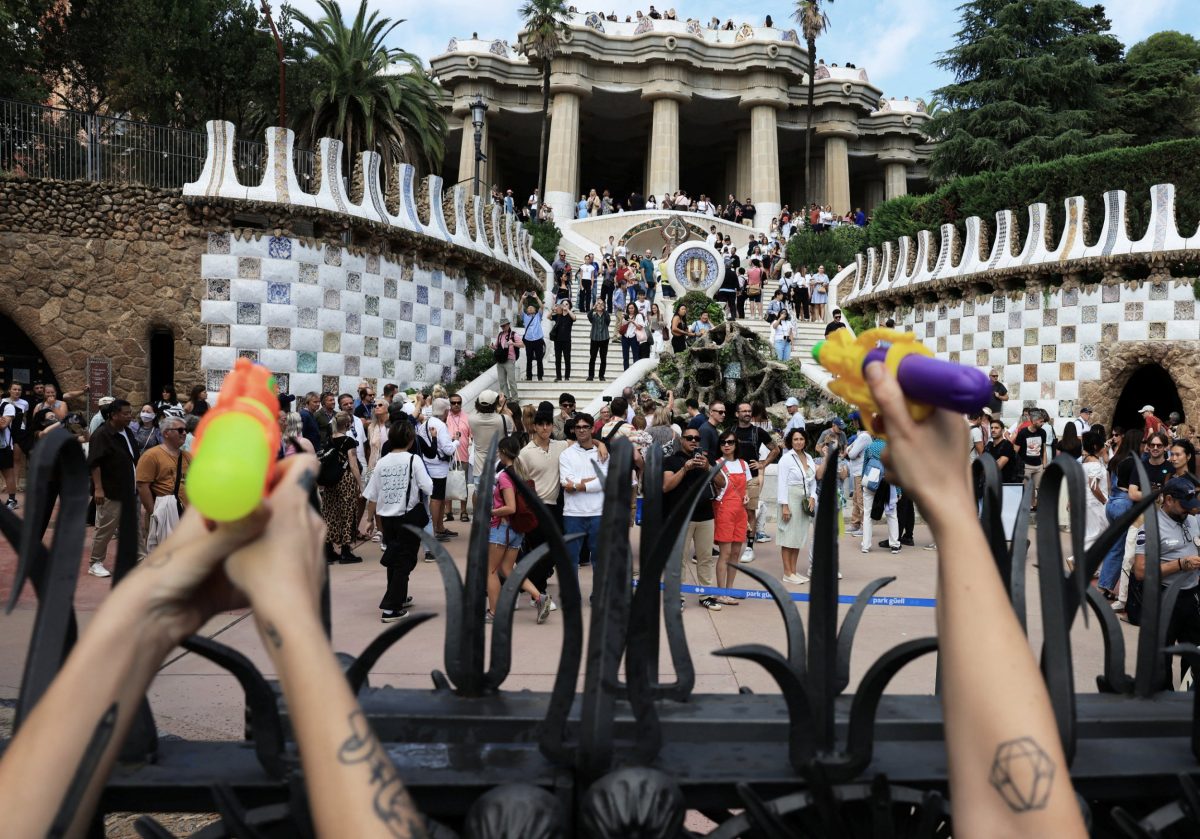Protesters Target Tourists in Barcelona to Highlight Over-Tourism Crisis
In a bold demonstration against the overwhelming presence of tourists, activists in Barcelona used water pistols to spray holidaymakers at Parc Güell, one of the city’s most famous landmarks. The protest took place on Saturday, coinciding with UN World Tourism Day, and aimed to draw attention to the growing concerns over mass tourism in Spain.
The demonstrators, who numbered around 50, sang a modified version of The Beatles’ “Yellow Submarine,” changing the lyrics to mock tourists. They blocked the entrance to the park, which was designed by the renowned Catalan architect Antoni Gaudí. As they shouted “tourists go home,” some protesters attempted to douse visitors with water while holding up a banner that read, “mass tourism kills the city.”

This action was organized by the Assembly of Neighbourhoods for Tourism Degrowth, a group that called for reduced tourism to protect the city from the negative impacts of the industry. Another neighborhood group near Parc Güell also joined the protest, urging for fewer visitors to the site. Their social media post stated, “Today, on International Tourism Day, various entities and neighbours have called in front of the Parc Güell for tourist degrowth (less tourism) to save Barcelona from this industry and (tourist) model that means the expulsion of neighbours and precarious labour conditions.”
Spain, along with other European countries, is facing a delicate balance between maintaining its thriving tourism sector and addressing the growing dissatisfaction among locals. The effects of mass tourism have led to rising property prices, displacement of residents, and increased pressure on urban infrastructure.

In response to the protests, activists have threatened to target tourists and tourism companies directly if authorities fail to address the issue. However, they emphasize that their opposition is not directed at tourists themselves, as tourism remains a vital part of the economy in Spain and other southern European countries.
Over-tourism has had significant consequences in cities like Barcelona, where foreign investments and the surge in short-term rental properties have driven up housing costs. This has forced many long-time residents out of their neighborhoods, leading to a sense of loss and frustration among local communities.
Earlier this year, thousands of people took to the streets in cities across southern Europe to protest against overtourism. Demonstrations included firing water pistols at shop windows and setting off smoke in Barcelona, where the main protest occurred. Similar actions were seen in other Spanish cities such as Ibiza, Málaga, Palma de Mallorca, San Sebastián, and Granada. In Italy, protests took place in Genoa, Naples, Palermo, Milan, and Venice.
Despite these protests, international travel spending in Europe is expected to increase by 11% to €716 billion this year, with Spain and France anticipating record numbers of tourists. Experts warn that without a more sustainable approach to tourism, the unrest could continue or even escalate.
“If the model does not change, opposition will still be there and probably keep growing,” said Javier Pascuet, a consultant specializing in sustainable tourism and smart destinations.
Tourism plays a crucial role in Spain’s economy, contributing 12.3% of GDP and 11.6% of total employment in 2023, according to Spain’s National Statistics Institute. The sector has also been a key driver of job creation, helping to boost real GDP growth in recent years. Between 2021 and 2024, Spain’s economy expanded by an average of 4.7% annually in real terms.
To address the challenges, the Spanish government plans to introduce a 21% VAT tax on short-term tourist rentals, doubling the tax applied to hotel rooms. This move aims to strike a balance between supporting the tourism industry and tackling the housing crisis. A recent report by the Bank of Spain highlighted a deficit of 450,000 homes in the country, underscoring the urgent need for solutions.



